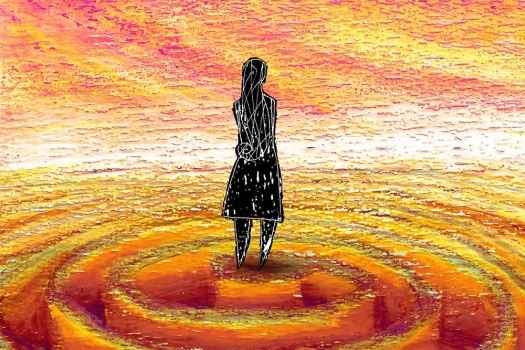The Impact of ‘Joker’ on Mental Illness Stereotypes
Do movies like ‘Joker’ accurately represent mental illness, or do they contribute to stigma and misinformation?
November 15, 2023
Movies are designed to reel the audience in and offer an escape from reality for a couple of hours. They give a glimpse into the minds of the characters onscreen.
Movies also allow viewers to reflect on their own feelings and experiences. When a movie evokes current events, it can provoke emotions and reactions ranging from glee to anxiety.
“Joker” is one such film.
In 2020, Joaquin Phoenix earned the Best Actor nod at the Golden Globes and the Academy Awards, and the movie received 11 Oscar nominations, with two wins.
However, a debate among mental health advocates has since erupted. Are movies like “Joker” harmful—or helpful—to mental health conversations?
Keep Reading To Learn
- How media depictions of mental illness have changed
- Common myths about mental illness portrayed in the media
- The concerns and opportunities that arise from “Joker”
The Stigma Surrounding Mental Health
The topic is taboo, and the stigma feels suffocating and isolating. We can do better.

Changing Mental Health Conversations
“Joker” was released at the end of a decade Huffington Post coined as “the decade that changed the way we think about mental health.”
There have been huge shifts in awareness about mental health issues and more candid discussions about mental illness.
McLean’s Deconstructing Stigma is at the forefront of campaigns working to make mental health part of everyday discussion, not a shameful subject.
Mental Illness in the Media
The media has increased awareness and conversation around mental illness. This is due in part to deaths by suicide by well-known celebrities, including Robin Williams, Anthony Bourdain, and Stephen “tWitch” Boss.
With this awareness has come a shift on the silver screen with how films choose to portray mental illness.
“Hollywood has frequently depicted mental illness onscreen over the years. But many recent depictions have become more empathic and less sensational,” says McLean’s Benjamin J. Herbstman, MD, MHS.
“Since 2000, more than a few Academy Award nominees for Best Picture have compassionately explored mental health. “A Beautiful Mind” portrays psychotic illness. “Silver Linings Playbook” and “Manchester by the Sea” include mood disorders. Substance misuse and suicide are integral to the story told in “A Star Is Born.” Such films can help destigmatize these problems while also providing the public with a means to better understand them.”
Myth vs. Fact: Violence and Mental Health
Myths remain about mental illness that have proven difficult to debunk. One such myth is an association between mental illness and violence.
“The reality is that only 3-5% of violent acts can be tied to those living with a serious mental illness,” says Dost Öngür, MD, chief of McLean’s Division of Psychotic Disorders.
“In fact, people with serious mental illnesses are up to 10 times more likely to be the victim of a violent act than someone who doesn’t have a mental illness.”
When “Joker” was released, there were concerns about behavior that would mimic Arthur [the character’s given name] and his erratic and concerning behavior.

Optimistic Views of ‘Joker’
In addition to public concern, the movie has opened multiple avenues for interpretation.
For mental health professionals, many have used its popularity as an opportunity to educate about mental illness.
Multiple articles have focused on where “Joker” has cinematized mental illness, what has been glossed over, and how we can support those who are struggling—visibly or internally.
“I have a very different take on the film, starting with not seeing it about a person with a mental illness and the issues of medication and stigmatization,” says Rodrigo Barahona, PsyD.
“Rather, [“Joker” is] a film about the ‘illness’ in all of us, including the experience of lack, envy, rage, and manic and narcissistic defenses against these.”
The cast and creative minds behind “Joker” had their own perceptions of the movie as well.
Todd Phillips, the director, shared in an interview that Arthur’s inability to be helped—by his peers, family, society, career, and providers—was what contributed to his downward spiral.
According to Phillips, “It’s about the power of kindness, and a lot of people miss that … that’s where it started from, and there are other things in the movie, like lack of love, the lack of empathy in society, and childhood trauma, but the power of kindness really runs through this film.”
Perhaps the movie is a call-to-action for the viewers to reflect on their own roles in society.
We can learn how to help each other and feel motivated to better understand each other’s internal motives, experiences, and feelings.
Maybe under the grimness and grey area around mental health in “Joker,” there’s an opportunity. We can all learn, discuss, and further destigmatize mental illness.
The sequel, “Joker: Folie à Deux,” is set to release on October 4, 2024. As the story continues, we can expect fresh conversations about the portrayal of mental illness.
Mental Health Screening
Online screening is one of the quickest and easiest ways to determine your psychological well-being.

Want More Information?
Looking for even more information about mental illness and stereotypes? You may find these resources helpful:
- Deconstructing Stigma
- Yes, There Is a Big Difference Between Mental Health and Mental Illness
- How the Stigma of Mental Health Is Spread by Mass Media – Verywell Mind
- The Stigma of Mental Disorders – Embo Reports
- Suicide: Know the Signs and What To Do
- Mental Health Myths and Facts – SAMHSA
- Stigma, Prejudice and Discrimination Against People With Mental Illness – American Psychiatric Association
- Video: Become Friends With Your Anxiety
- Everything You Need To Know About Depression



